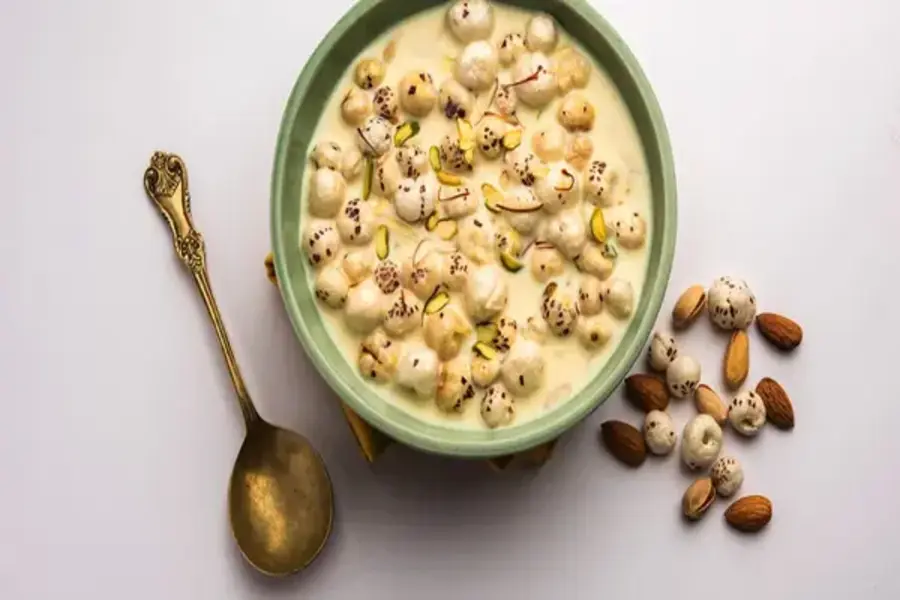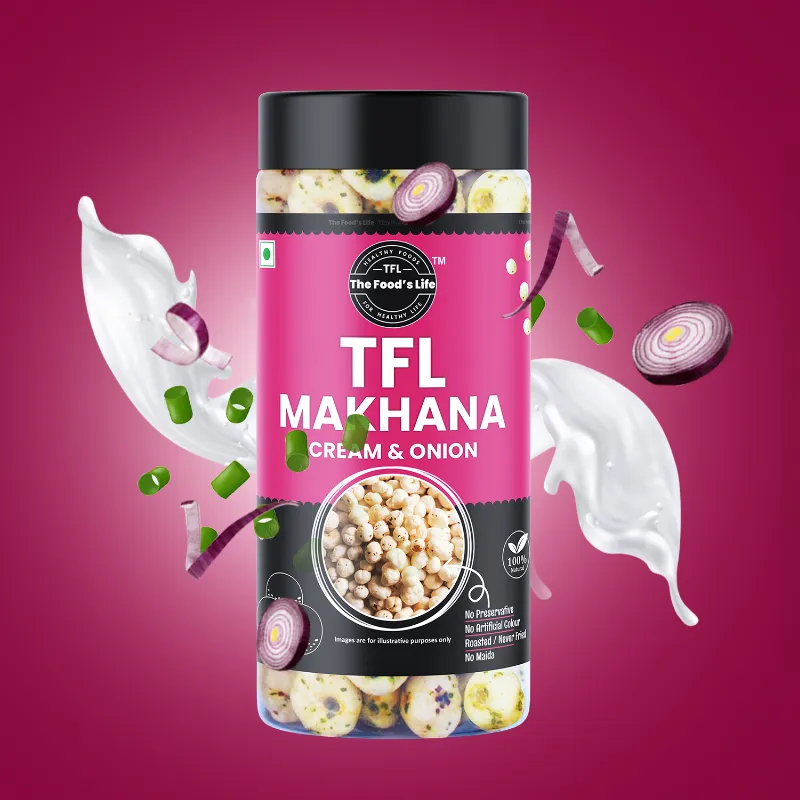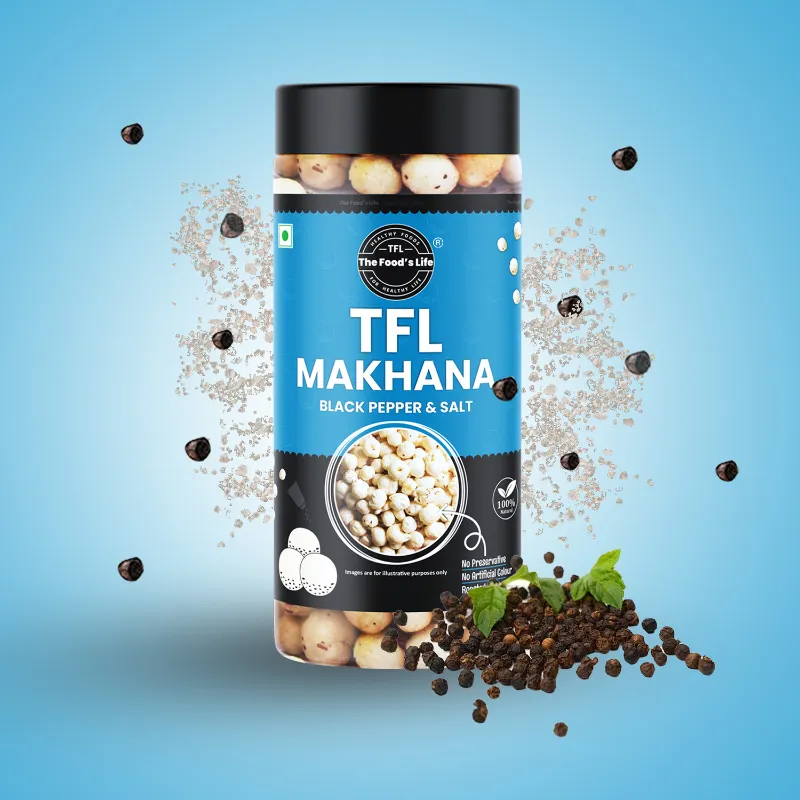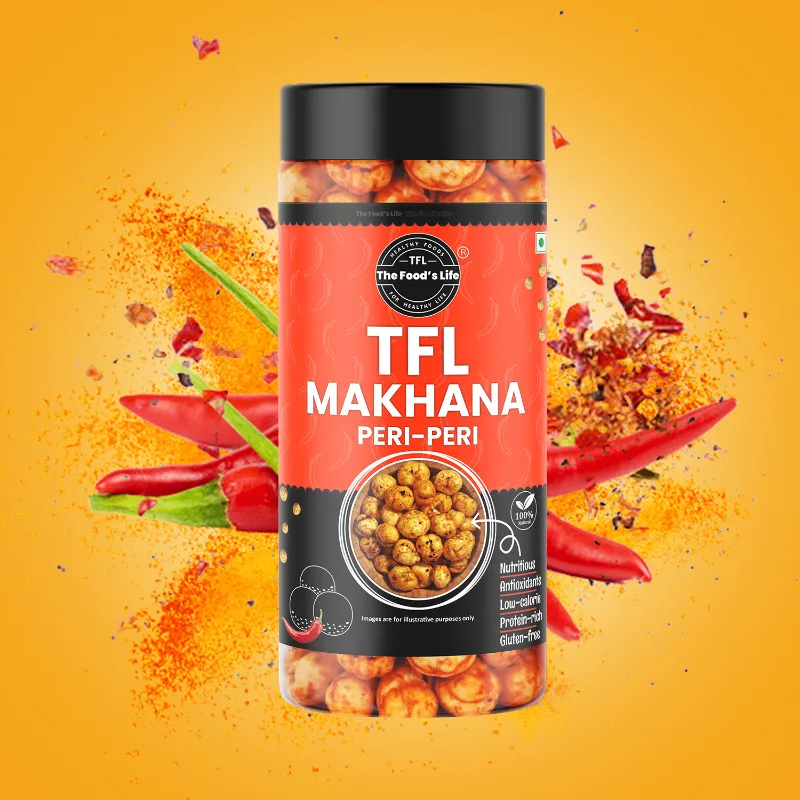Navratri is one of the most revered festivals in India, a time when many people across the country observe fasting to purify their minds and bodies while honoring the divine. The practice of fasting during Navratri requires a specific diet, focusing on sattvic (pure) foods that align with the spiritual energy of the occasion. Among these fasting-friendly foods is Makhana, also known as fox nuts or lotus seeds. But the question arises—Can Makhana be consumed during Navratri fasts?
In this blog, we'll dive deep into why Makhana is a popular snack during Navratri, its nutritional benefits, and how it perfectly fits into fasting rituals. Along the way, we’ll also explore some exciting offerings from TFL Makhana, making your fast flavorful and healthy.
Why Do People Fast During Navratri?
Navratri fasting is a blend of physical and spiritual discipline. The practice aims to purify the body, mind, and soul, helping devotees achieve a deeper connection with the divine. During these fasts, there are dietary restrictions that exclude certain food groups like grains (wheat and rice), meats, alcohol, and spicy or fried foods. Instead, people opt for sattvic foods, which are fresh, light, and nutritious.
Can Makhana Be Consumed During Navratri Fasts?
Yes, Makhana is an ideal snack for Navratri fasting. In fact, it is widely consumed by people observing fasts because it is considered sattvic, pure, and easy to digest. But why is it such a fasting favorite? Let’s explore.
Why Makhana is Perfect for Navratri Fasting
Sattvic Nature: Foods that are considered sattvic are pure, fresh, and help maintain balance in the body and mind. Makhana fits perfectly into this category, making it a suitable option for fasting.Low in Calories: One of the major reasons people choose Makhana during fasts is that it is light on the stomach. With its low-calorie content, it helps you feel full without overeating, an essential aspect of mindful fasting.
Rich in Nutrients: While fasting, it's important to consume foods that are nutrient-dense yet easy to digest. Makhana is rich in protein, fiber, and essential minerals like magnesium, potassium, and phosphorus, making it a wholesome snack during fasts.
Maintains Energy Levels: Makhana provides sustained energy without making you feel lethargic. It’s the perfect snack to keep you energized throughout your day of fasting, without compromising your spiritual practice.
Health Benefits of Makhana During Fasting
In addition to being a great fasting snack, Makhana offers a range of health benefits that make it a must-have in your Navratri fasting diet. Here are some key advantages:
1. Promotes Weight Loss
Makhana is low in calories and high in fiber, which makes it ideal for those looking to maintain or even lose weight during fasting. The fiber content helps you stay full for longer, reducing the temptation to indulge in unhealthy snacking.
2. Regulates Blood Sugar Levels
For people with diabetes or those mindful of their sugar intake, Makhana’s low glycemic index ensures that it doesn’t cause a spike in blood sugar levels. This makes it a safe and healthy option during fasting periods like Navratri.
3. Supports Digestion
Makhana is easy on the stomach and helps regulate digestion. Its high fiber content helps prevent constipation, which can sometimes be a concern during fasting due to irregular meals.
4. Boosts Heart Health
Makhana is rich in potassium and magnesium, which help in maintaining heart health. Potassium, in particular, aids in controlling blood pressure, a vital benefit when fasting alters your eating patterns.
Delicious Ways to Enjoy Makhana During Navratri
If you’re wondering how to make the most of this nutritious snack during your fasts, here are some simple and delicious ways to enjoy Makhana during Navratri:
Roasted Makhana: Lightly roast Makhana with a touch of ghee and sprinkle with rock salt for a crunchy, tasty snack.Makhana Kheer: Satisfy your sweet tooth with Makhana kheer, made with milk and a natural sweetener like jaggery.
Makhana Sabzi: You can add Makhana to fasting-friendly curries made with potatoes or paneer for a wholesome meal.
Can We Eat Makhana in Navratri? – The Cultural Connection
Makhana has been an integral part of Indian cuisine for centuries, especially during fasting seasons. It is considered not only a nutritious snack but also a food that aligns with the spiritual and dietary guidelines of fasting. Given its sattvic nature, it holds a special place in the Navratri diet. But now, the traditional snack has evolved with exciting flavors that make fasting both healthy and enjoyable.
Add Some Flavor to Your Fast with TFL Makhana
At TFL, we understand that fasting doesn’t have to be bland or boring. That’s why we offer a range of flavored Makhana to make your fasting experience more delightful. TFL Makhana comes in exciting flavors like peri-peri and pudina punch, giving you the crunch and flavor you crave while sticking to your fasting guidelines.
With TFL Makhana, you don’t have to compromise on taste or health. Whether you're fasting or simply looking for a guilt-free snack, TFL Makhana is the perfect choice. Plus, it’s roasted, not fried, making it a healthy alternative to other snacks.
Conclusion: Can We Eat Makhana in Navratri?
So, the next time you find yourself wondering, “Can we eat Makhana in Navratri?”, the answer is a resounding yes! Makhana is a sattvic, nutrient-dense, and delicious food that perfectly aligns with the spiritual and dietary principles of Navratri fasting.
Whether you’re looking to stay energized, manage your weight, or simply enjoy a healthy snack, Makhana is the way to go. And with TFL’s range of flavored Makhana, you can make your fast even more enjoyable without compromising your health or spiritual journey.
Make sure to include TFL Makhana in your Navratri shopping list, and experience the perfect balance of taste and health during your fast!






